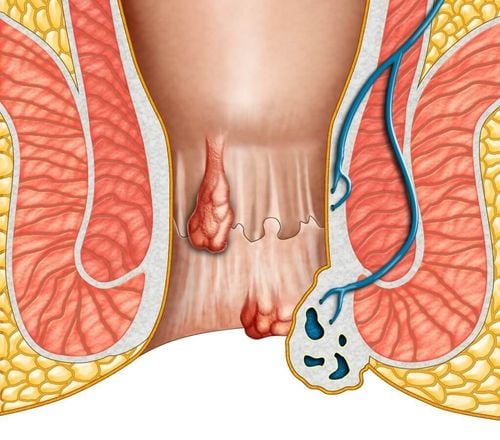This is an automatically translated article.
What do 60-year-old men need to do? You need to perform periodic screening tests, combine with full vaccinations and have healthy and scientific living habits.
1. What should a 60-year-old man check?
Taking care of a 60-year-old man's health as a whole can reduce the risk of developing many diseases or help detect diseases at an early stage, providing a better chance of treatment.
Here are the important screening tests that 60-year-old men need:
Alcohol abuse: Test all adults at routine wellness screenings; Blood pressure: Perform the test on all adults. Check frequency is once a year if your blood pressure is normal (less than 120/80 mmHg). If your blood pressure readings are higher than normal, you may need to check them more frequently (as ordered by your doctor); Colorectal cancer: Perform screening on all men at average risk. Tests for polyps and cancer are: sigmoidoscopy every 5 years or colonoscopy every 10 years or CT colonoscopy every 5 years. Tests for cancer are: fecal occult blood test once a year, immunohistochemical testing every 2 years, or stool DNA testing every 3 years. Some people may be assigned a different screening frequency (according to personal or family history); Anxiety: Screen all 60-year-old men at routine health screenings; Type 2 diabetes or prediabetes: Screening for all men from age 45 or men of any age who are obese or at risk for the disease. The frequency of screening is at least every 3 years; Type 2 diabetes: Screen all men with prediabetes annually; Hepatitis C: Perform screening in people at higher risk of infection. Perform screening at regular health checkups. All men aged 50 - 70 years should be tested for hepatitis C at least once; High cholesterol and triglycerides: Get tested in all adults at least every 5 years; HIV: Screen all men at regular health check-ups; Lung cancer: Screening for people 55 to 80 years old who have smoked. Annual screening is recommended in smokers with a smoking history of 30 years or who have quit within 15 years; Obesity: Screening anyone at increased risk for obesity at routine wellness screenings; Prostate cancer: Get screened starting at age 45 at regular checkups; Syphilis : Get tested on anyone at higher risk of infection, screen at routine health screenings; Tuberculosis: Screening for anyone at higher risk of infection, as directed by a physician; Vision: Perform screening in all adults at a frequency as directed by the physician.

Chăm sóc đàn ông 60 tuổi cần quan tâm đến chỉ số huyết áp
2. Health care for 60-year-old men: Get a doctor's consultation
The health of 60-year-old men is good or not depends on whether you follow the doctor's advice properly. The following notes will be helpful to you:
Using aspirin to prevent cardiovascular complications: Men aged 45 - 79 years old can be prescribed to use it when diagnosed at risk of cardiovascular disease; Diet and exercise: Good choices for adults who are overweight or obese. You should do so as soon as you are diagnosed with this condition; Sexually Transmitted Diseases Prevention: Anyone at higher risk of infection is advised at regular checkups; Tobacco use and tobacco-related diseases: Physicians will advise all adults during routine health screenings.
3. Vaccinations to prevent some diseases
In the health care of 60-year-old men, vaccination plays a very important role. Some of the vaccines recommended by doctors for men in their 60s are:
Tetanus, diphtheria, and whooping cough vaccines: Give all adults every 10 years; Measles, mumps and rubella vaccine : Administered to men aged 60 years (who have never had the infection before or have not been vaccinated). The injection dose is 1 or 2 doses depending on the doctor's prescription; Chickenpox vaccine: Vaccinate men aged 50-64 who have never had an infection or have never been vaccinated. The injection dose is 2 doses, the 2nd dose is at least 4 weeks apart from the 1st dose; Flu vaccine : Give all adults yearly, when a vaccine is available in the community; Hepatitis A vaccine: Administered to people at risk. The injection dose is 2 injections, at least 6 months apart; Hepatitis B vaccine : Administered to people at risk. The injection dose is 3 doses, the 2nd dose is about 1 month after the 1st dose, the 3rd dose is at least 2 months after the 2nd dose (or at least 4 months after the 1st dose); Haemophilus influenzae type B vaccine: given to people at risk with a dose of 1-3 injections; Meningococcal vaccine : For those at risk, the dose is 1 or more shots; Pneumococcal conjugate vaccine (PCV13) and pneumococcal polysaccharide vaccine (PPSV23): Injected for those at risk. PCV13 is given 1 dose for people aged 19 - 65 years (protects the body against 13 strains of pneumococcal bacteria), PPSV23 is given 1 - 2 doses for people under 64 years old, 1 dose is given to people 65 years of age and older (protects the body against bacteria). able to fight against 13 strains of pneumococci); Herpes zoster vaccine: For all men 60 years of age and older, the dose is 1 shot.

Tiêm vắc-xin có thể đảm bảo sức khỏe đàn ông 60 tuổi và phòng ngừa một số bệnh lý
4. Useful tips to protect the health of 60-year-old men
To protect health, 60-year-old men should pay attention to:
Pay attention to cognitive function and try to stay mentally alert. That means keeping your brain busy by reading, doing crossword puzzles, socializing with people or trying out new hobbies; Strength training prescribed by your doctor will help you maintain better balance, prevent the risk of loss of bone and muscle mass, and avoid the risk of falls or other accidents; You should stop smoking and stop drinking alcohol to increase life expectancy, prevent the risk of heart disease and lung cancer; Don't forget to do health screenings and vaccinations. Health care for 60-year-old men includes the above important notes. You should have regular screening tests even if you don't have any symptoms to detect disease early or make lifestyle changes to reduce your risk.
Periodic health check-ups help to detect diseases early, so that there are treatment plans for optimal results. Currently, Vinmec International General Hospital has general health checkup packages suitable for each age, gender and individual needs of customers with a reasonable price policy.
Results of the patient's examination will be returned to the home. After receiving the results of the general health examination, if you detect diseases that require intensive examination and treatment, you can use services from other specialties at the Hospital with quality treatment and services. outstanding customer service.
Please dial HOTLINE for more information or register for an appointment HERE. Download MyVinmec app to make appointments faster and to manage your bookings easily.
References: healthline.com, cedars-sinai.org, webmd.com












